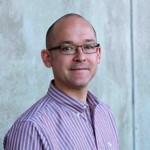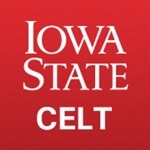Web Talk, Including students in understanding implicit bias
| Date/Time: | Friday, 23 Oct 2020 from 3:00 pm to 4:00 pm |
|---|---|
| Location: | online only - via Zoom from Yale University |
| URL: | https://bit.ly/3m1YSKz |
| Contact: | |
| Phone: | 000-000-0000 |
| Channel: | Center for Excellence in Learning and Teaching |
| Categories: | Diversity Training, development |
| Actions: | Download iCal/vCal | Email Reminder |
It is not hard to imagine how this implicit bias can alter the way we teach our students, but also how students react to each other and engage with you as a facilitator. This raises two key questions; 1) how do we engage students to think about implicit bias? 2) how would/does this affect our teaching?
Presented by Dr. Neil Grimsey, Assistant Professor, Pharmaceutical and Biomedical Sciences
To join this web talk
Register via Web Talk, Including students in understanding implicit bias - Zoom registration website.
Series Overview
The National Institute on Scientific Teaching extends the learning and dialogue into a year-round community that supports and inspires evidence-based teaching. Each month, the SI community is invited to attend an interactive webinar related to the practice and/or dissemination of scientific teaching. The webinar will be facilitated by someone experienced in that area, integrating significant time for questions and open discussion. Webinars are open to SI alums as well as those generally interested in scientific teaching and evidence-based teaching strategies.
Coordinated by the following
The series is brought to you by Yale Poorvu Center for Teaching and Learning, Howard Hughes Medical Institute, and National Institute on Scientific Teaching.
This web talk is promoted by the Center for Excellence in Learning and Teaching (CELT).


